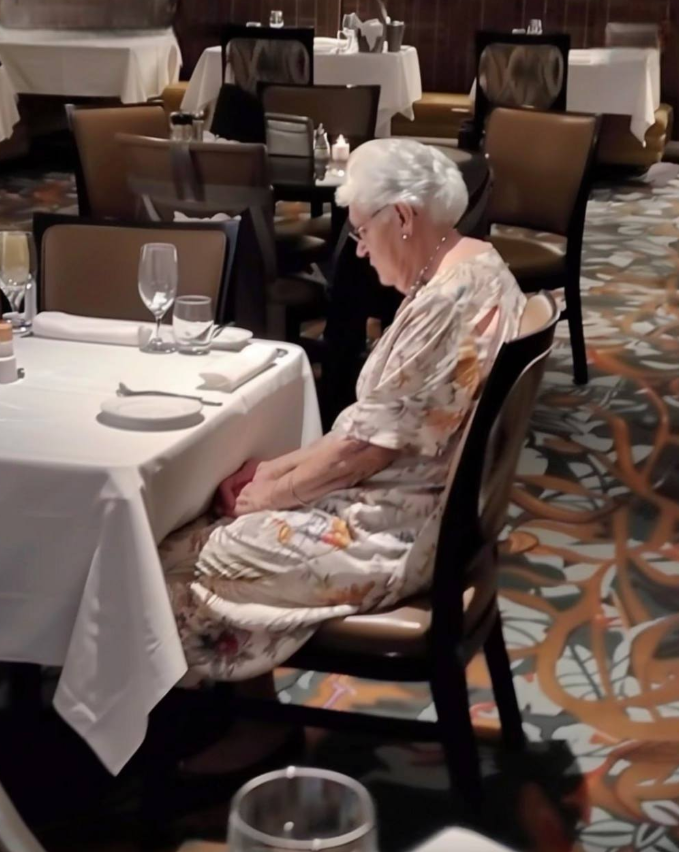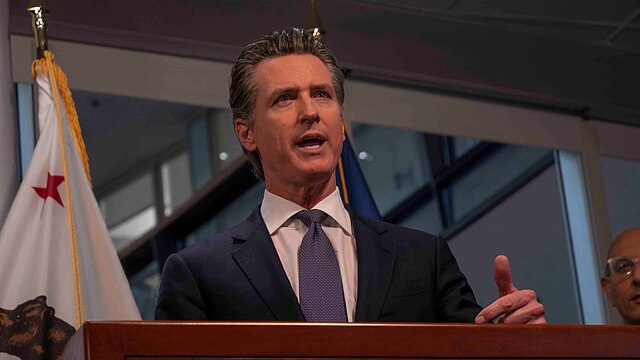Chapter 1: A Promised Celebration
For her 85th birthday, Grandma had wished for something modest—a simple dinner among her loved ones, a chance to feel the warmth of family and reminisce about days gone by. In her quiet, dignified way, she looked forward to that evening, clutching her worn, embroidered handkerchief and a smile that belied the years of hardship she’d endured. To her, every birthday was a quiet milestone, a testament to a life defined by sacrifice, resilience, and unconditional love.
I had planned that evening meticulously. I wanted everything to be perfect: a small, intimate dinner at a place that respected her tastes—a family-owned restaurant known for its gentle ambience and classic dishes. I envisioned the soft murmur of conversation, the clink of cutlery, and the gentle laughter of a family reunited. I had hoped it would be a respite from our everyday battles, a moment when all our disparate, flawed selves could gather and feel whole, if only for a few hours.
But as the evening approached, things took an unexpected turn. My relatives, ever the opportunists when an event promised grandeur, decided that the modest dinner was too simple for our legacy. Soon, the humble venue was replaced with reservations at the fanciest steakhouse in town—a place where the waiters wore crisp uniforms and the chandeliers sparkled like fragments of a forgotten star. The invitation had suddenly become a lavish affair, a spectacle to showcase their status rather than a celebration of Grandma’s quiet dignity.
Chapter 2: The Ill-Fated Dinner
The restaurant’s opulence was blinding and contradictory to Grandma’s gentle spirit. I remember the low hum of the polished floor, the reflective surfaces that magnified every well-tailored suit, and the clinking glasses that seemed to toast to wealth rather than togetherness. Cousin Katie, always too eager to be the center of attention, posed for endless pictures, her eyes sparkling with vanity. Her brother Mark, never without a remark, sampled every expensive drink like it was his personal right. Aunt Linda, with her booming laugh and commanding tone, recommended the premium options as if a higher price tag were proof of superior character. And Uncle Joe… Uncle Joe was the mastermind behind their collective scheme, his grin a silent promise that, when the bill came, the sacrificial lamb of our group would be me.
I sat there, my heart heavy. I had anticipated a simple meal, a modest celebration in honor of the woman who had loved us all so fiercely. Instead, the table was adorned with extravagance, an overindulgence that never belonged in any moment when we were meant to honor a lifetime of modest miracles.
Then came the bill. I remember the suspense as the waiter placed the envelope in front of Aunt Linda. Her gasp echoed around the table. “Oh wow, look at that total…” she murmured, her eyes wide in disbelief. In that moment, the facade cracked, revealing all the greed and carelessness that lay beneath our family’s glittering exterior.
Katie sighed dramatically as if her financial woes—”I spent all my savings on concert tickets. Live music is important for my mental health,” she explained with theatrical sadness—were the only reason she couldn’t contribute. Mark, not to be outdone, recounted his mounting dog vet bills. And then Uncle Joe, with a cunning glint, turned to me. “You work at the bank,” he said smoothly, as if that were a badge of honor, “have no kids, live alone… What else are you spending money on?” His voice dripped with calculated indifference, and the guilt trip was ready-made: “It’s for Grandma. We might not have many more of these.”
I could feel each word like a slap. They had planned it all—the lavish meal, the indulgence, and then, when the inevitable shock came with the astronomical bill, they expected me to pay, citing my supposed lack of responsibilities. I smiled politely, concealing my inner turmoil. “Let me take care of something, and we’ll get back to this,” I said and walked away from the table, my mind swirling with disbelief and heartbreak.
Chapter 3: Abandoned in the Midst of Extravagance
When I returned, the restaurant looked strangely deserted. The table was empty, silent except for the echoes of clinking cutlery that had long since faded away. My heart began to race in anticipation and dread. And then I saw her—Grandma.
There she sat, all alone, clutching her small purse as if it were a lifeline, her face etched with worry and confusion. The luxurious backdrop of our surroundings did nothing to comfort her; if anything, it amplified her sense of isolation. “Where’d everyone go?” she asked in a trembling voice. “They said they’d be right back. Are we okay? Is everything paid for? I can cover some if I need to—I don’t have much with me, but I’ve been saving up…” Her words tumbled out in a mixture of determination and fear, and in that moment, I saw not the proud, gentle soul of my childhood, but a fragile woman overwhelmed by betrayal and loneliness.
I rushed to her, wrapping my arms around her trembling form. “Don’t worry, Grandma. Everything’s under control,” I assured her, though I knew in my heart that nothing was. We managed to finish the meal in quiet resignation, with only the restaurant staff offering the solace of polite smiles and soft murmurs, handling the rest of the bill without further incident.
That night, as we left the restaurant in silence, I held her hand tightly. The drive home was filled with unspoken sorrow—a melancholy that seeped into every word, every glance. I could see in her eyes the lingering shadow of that cold betrayal, and despite my best efforts, I knew that this was a night that would haunt us both for years to come.
Chapter 4: The Morning After
When morning finally came, the fallout began in earnest. My phone was blowing up with missed calls and texts—a cacophony of messages that no one could hide from. In the quiet stillness of my apartment, every ring, every buzz seemed to echo with the weight of what had happened the previous night. Relatives I’d long considered dear were suddenly arriving on my caller ID, their tone a mixture of indignation and disingenuous concern.
“Why did you let Grandma do that?” came one message. “We needed you there!” read another, heavy with accusations. Some messages were clearly an attempt to shift blame, while others were bitter jabs that cut into my already wounded spirit. I sat there in a daze, scrolling through each message, feeling a growing sense of isolation. I wondered how people could be so callous toward someone who had given her entire life for this family, a woman who had never asked for such extravagant celebrations, let alone for her dignity to be tossed aside.
Throughout the day, I kept replaying the night in my head—the extravagant bill, the self-indulgence of my relatives, and the poignant image of Grandma, alone and vulnerable. The more I thought about it, the more I began to see the deeper rot beneath the veneer of our familial interactions. It wasn’t just about the money; it was about respect, about compassion, and about how we chose to honor those who had given us everything.
I reached out to Grandma as soon as I could, ensuring that she was safe at home and that she had everything she needed. But as we spoke on the phone, her voice trembled with a sadness that was almost unbearable. “I thought I’d see all of you there. I can’t understand why you’d want to leave an old lady like me,” she whispered. I tried to reassure her, but even my words felt inadequate against the tidal wave of her hurt and disappointment.
Chapter 5: The Unraveling of Facades
In the days that followed, the incident festered within the family like an open wound. Accusations and defensive justifications flew across group chats and long, bitter phone calls. Some members insisted that I should have done more to keep Grandma from being abandoned. Others, who had been complicit in the plan, tried to downplay the significance of the event, claiming that it was just a “misunderstanding” or that “Grandma wasn’t hurt by it.” Yet, beneath every excuse was the unmistakable truth: our family had grown selfish and insensitive, prioritizing social posturing over genuine care for the one person who had nurtured us unconditionally.
It wasn’t long before tensions escalated to the point where long-simmering resentments began to spill into open confrontations. Family dinners turned into arguments, and gatherings that once brimmed with laughter now carried an undercurrent of bitterness. I found myself increasingly isolated, ostracized by relatives who once shared my blood and history. The more I tried to uphold the memory of what the night should have been—a celebration of a remarkable life—the more I was reminded of the toxic dynamics that had taken root. I felt like a silent witness to my own family’s disintegration.
Every time I looked at Grandma, her frail, time-worn face reminded me of everything I had lost—her gentle eyes once full of hope now shrouded in sorrow; her delicate hands that had once held ours now trembling in the weight of disappointment. I began to document our conversations, desperate to cling to any shred of dignity she might still have. I scribbled down every detail, every tear that fell during our quiet talks, knowing that one day I might need to confront the painful truth of how we had failed her.
Chapter 6: Flashbacks of Love and Loss
As the days turned to weeks, I found myself haunted by memories of Grandma’s childhood. I remembered the countless times she’d shared stories of her own struggles, of how her parents had taught her the value of resilience, of how even in the bleakest moments, she had managed to find hope. Grandma had been our rock in a world that often felt cold and unyielding—a testament to unconditional love and sacrifice.
I recalled the long summer afternoons when she’d sit under the ancient oak in the backyard, her voice soft yet determined as she recounted tales of hardship turned to triumph. I remembered the time when she had secretly saved every penny she could spare, sacrificing her own comforts so that her children might have a chance at a better future. Her sacrifices were as countless as the stars, and it pained me deeply to see how, in our present, those values had been so callously disregarded.
Late at night, when the world was quiet, I’d lie awake thinking of her—a lonely, forgotten soul in a family that had once been united by love and mutual respect. I began to understand that the dinner was not an isolated incident; it was a symptom of something far more insidious—a creeping isolation that had slowly poisoned our familial bonds. Every plea, every tear shed by Grandma that night was a silent cry for the respect and love that we had taken for granted.
Chapter 7: Confrontations and Regrets
Eventually, the tension reached a breaking point. I arranged a meeting with the closest family members, determined to confront the issue head-on. I sent out a message asking that we all come together, not just to discuss the dinner but to address what we had become. The meeting was set in a quiet corner of a local park, under a sky that seemed to mirror our collective gloom.
As we gathered, what should have been a moment of honest reconciliation quickly devolved into an argument. Uncle Joe, whose opportunistic grin had betrayed him that night, accused me of overreacting. Katie complained that I was tarnishing a memory that was supposed to be joyous. Mark, defensively, blamed my constant reminders of decency for his own shortcomings. I stood there, words catching in my throat, realizing that each of them had become entangled in their self-justifications, blinded by pride and denial.
I tried to explain how deeply I was hurt—not just by the money, but by the blatant disregard for Grandma’s feelings. I spoke of her sacrifices, of her silent strength, and of how every hurtful remark was a crack in the foundation of the family that should have been built on love and mutual care. But my words fell on deaf ears. In that moment, I saw in their faces not remorse, but an inexplicable cruelty that chilled me to the bone.
One by one, the arguments wound their way into bitter recriminations. Accusations were hurled like daggers, and the painful truth was splintered into a thousand irreparable pieces. The meeting ended in disarray, and as I drove home that night, the weight of failure pressed down upon me like a dark, unyielding shroud. I felt utterly alone—a solitary soldier mourning the demise of a bond that I had once believed was unbreakable.









